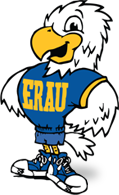Well it’s hard for me to believe, but my three months at Honeywell are now over. Overall I think it was a great experience for me. I gained a lot of technical knowledge that I think will help me in my remaining years at school and also when I enter the corporate world after graduation.
More importantly than the technical knowledge, in my opinion, is what I learned about how to operate in the corporate world of engineering. There are a lot of things that one has to get used to when working within a large corporation that you wouldn’t have to contend with if you worked for a smaller organization. But once you learn how to jump through (or go around) the hoops that are in place in these larger companies you can take advantage of the much larger resources that they have to offer.
My last days with the company were very busy. I was trying to make sure that all the work I had done over the summer was both well documented and backed up so that if things needed to be re-visited, the guys I worked with would have all my notes as a starting point, and wouldn’t have to start again from scratch.
Also, a new experience for me was going through all my hard copies of documents and destroying them. Since all of the work we do is considered either Honeywell Confidential or For Official Use Only (F.O.U.O.) we cannot just throw them away in the trash; they all have to be shredded and then put in special bins that go out to another large shredder the company operates.
Overall I think that my internship at Honeywell was a great experience for me and that I benefited from it greatly. I also felt that I made some contributions to the projects I helped out on and that I was not just there looking over other people’s shoulders.
I would definitely consider going back to Honeywell next summer and would recommend that others look into it as well. It was a great company to work for.


